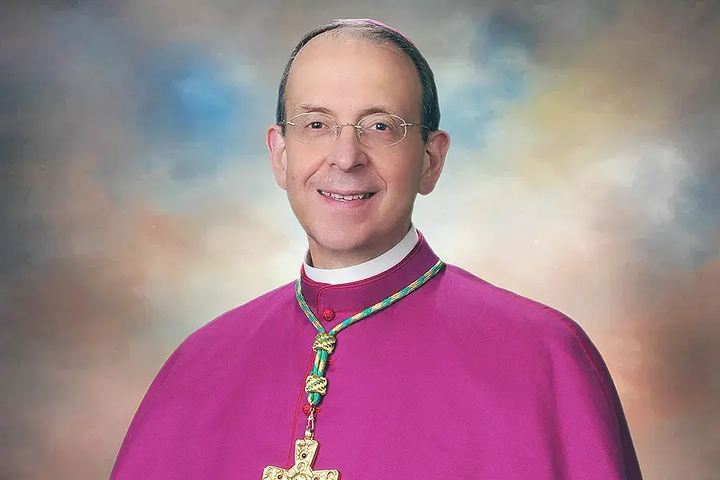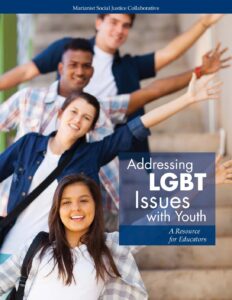Archbishop William E. Lori of Baltimore, the current U.S.C.C.B. vice president, released last week “Like Every Disciple,” a set of guidelines written as a personal letter for the pastoral accompaniment of LGBTQ persons.
In his letter, he acknowledges that LGBTQ pastoral accompaniment is a “delicate topic” and that many LGBTQ persons have been hurt by “family members, clergy and members of their parish community.” And he regrets the positioning of church teaching as opposed to LGBTQ persons.
“My hope is to help form Christian disciples,” the archbishop wrote in an email to Outreach. “I hope the document helps by offering a model for those on the ground, in ministries throughout the archdiocese, giving them the tools they need to accompany Catholics who identify as LGBT and their families in the fullness of truth and the fullness of charity.”
“My hope is to help form Christian disciples,” the archbishop wrote in an email to Outreach.
The archbishop writes we “must learn to live in the tension of truth and charity.” Citing the Catechism, he writes that the number of LGBTQ persons in our church is “not negligible” and later that they must be treated with “respect, compassion, and sensitivity” (CCC 2358).
Yet, he writes, “the whole teaching of the Church must be presented compassionately, not in an aggressive or defensive way, but clearly, completely, and faithfully.” The goal of this ministry, “cannot be aimed at changing the teaching of the Church,” even though there is space to “grapple with challenging teachings.”
In his letter, Archbishop Lori sets forth six guidelines “in response to the pastoral needs of LGBT persons and their families.”
1. Pastoral accompaniment recognizes the reality of our need. This need is the shared desire of all persons to find “intimacy with the Triune God: Father, Son, and Holy Spirit.”
2. Pastoral accompaniment shows compassion, respect, and sensitivity. In communion with the pastoral vision of Pope Francis, “LGBT persons are not a problem to be solved.” Instead, they are persons to be loved.
3. Pastoral accompaniment journeys together in light of our calling. That calling is to a life of holiness, which is guided by both “the teaching authority of the Church” and the Holy Spirit.
4. Pastoral accompaniment has a different kind of conversation. This is not a conversation full of polemics and “false dichotomies,” but a conversation that stands us squarely in the public forum “to be a light to the nations.”
Archbishop Lori: “The whole teaching of the Church must be presented compassionately, not in an aggressive or defensive way, but clearly, completely, and faithfully.”
5. Pastoral accompaniment lives rooted in the Church. Archbishop Lori reminds his flock that “the Church is not a club or a political party.” It is the Body of Christ, a place where everybody should feel like they belong.
6. Pastoral accompaniment is willing to make the long journey. The path toward discipleship is “long and challenging,” the archbishop writes. But Christ “is alive and active here and now.”
Concerning the use of the term “LGBT,” Archbishop Lori writes (in a footnote) that “LGBT is not intended to imply the Church’s affirmation of what may be implied when using this term in broader culture. This term is used to speak in a manner which respects” LGBT persons.
The archbishop’s view aligns with the use of “LGBTQ” in the preparatory documents for the upcoming Synod on Synodality scheduled for this October.



